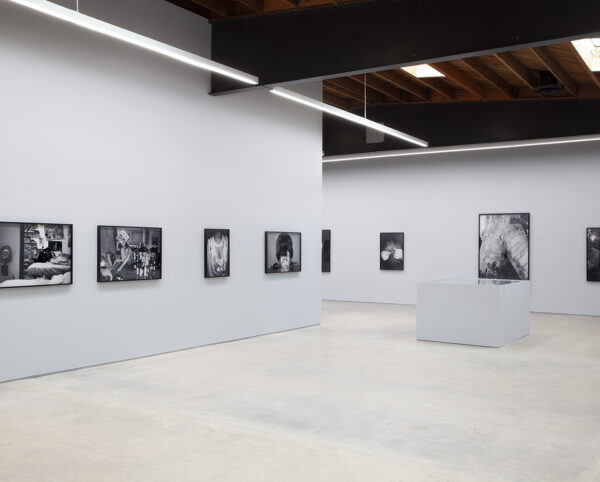Estate of Dash Snow
Dash Snow was active during a distinct chapter in American history, the early aughts, as an artist in New York at the epicenter of a whole country’s anxiety. Snow spoke for himself and on his own terms, but he also spoke of and to a generation emerging out of a post-9/11 reality. His work articulates his reaction to this politically charged and socially paranoid time, recording his own unadulterated vision of his chosen existence. He let loose a multitude of images during his short life, all honestly reflective of his microcosm as he captured who and what surrounded him, especially his close friends who became his family, while also creating imagery that was broad and pointed, satirizing the rhetoric of authority and the absurdity of tabloid media.
Starting from his teenage years, Snow was rarely without his Polaroid camera, and with it he chronicled all the messiness, excess, and hedonism of being young, reckless, and uninhibited. Through these images his assertion of life is palpable, sleepless and fast, but the life Snow asserts is paradoxical as it also flirts heavily with the precipice, with death. His rejection of structure, artifice, and cultural hegemony sits next to his attraction to the abject and to darkness. Yet, with equanimity, he captures poignant images that are romantic, tender, and beautiful. In essence, Snow’s life and work embodies the unity of opposites, fully embracing contradiction, and through his work we watch his wrestling with the frustration and tension therein.
Perhaps an inadvertent artist in the beginning, Snow’s work began to cohere around 2003, and in addition to Polaroids, he started using 35mm film as well as assembling collage works that made use of typographical devices. Arranging various clippings, often taken from yellowing newspaper pages with declarative headlines from the New York Post, along with bodily fluids, Snow’s collages played with connecting words and images with his own DNA. Around 2005, he had started to expand his practice, and it was at this time that he had his first solo exhibition that focused on his Polaroid work – a medium he continued to employ throughout his life.
In 2006, he incorporated more elaborate collages, installation, combine sculptures, performances, and short films into his practice, and his career was well established with his inclusion in the Whitney Biennial. His sculptures connected readymade, found objects, and detritus into cryptic assemblages, and his films relayed silent sketches of human exchanges, notably those that included his partner, Jade Berreau, and their daughter, Secret. Snow made art out of everything – every material, every situation, and every action. At the time, he was reacting to what he considered an overly authoritative government, he was suspicious of technology, namely surveillance, and fully rejected the direction he perceived society moving toward, that of a contemporized police state. There is bravery in his transparency, a prescience in his vision, and through his boundless exploration we have a collection of work that is definitive of his life and a significant era, well-aimed and ever relevant.
Dash Snow (1981-2009) lived and worked in New York, NY. Recent exhibitions of his work include The Drowned World: Selections from the Dash Snow Archive, at PARTICIPANT INC, in New York, NY (2019); Freeze Means Run, at The Brant Foundation Art Study Center, in Greenwich, CT (2016); and Dash Snow, curated by Mary Blair Hansen, at Contemporary Fine Arts, in Berlin, Germany (2012). His work is in the permanent collection of The Brant Foundation Art Study Center, Greenwich, CT; The Brooklyn Museum, Brooklyn, NY; and The Whitney Museum of American Art, New York, NY. A documentary about his life, directed by Cheryl Dunn, titled Moments Like This Never Last, was released in November 2020.
Artworks
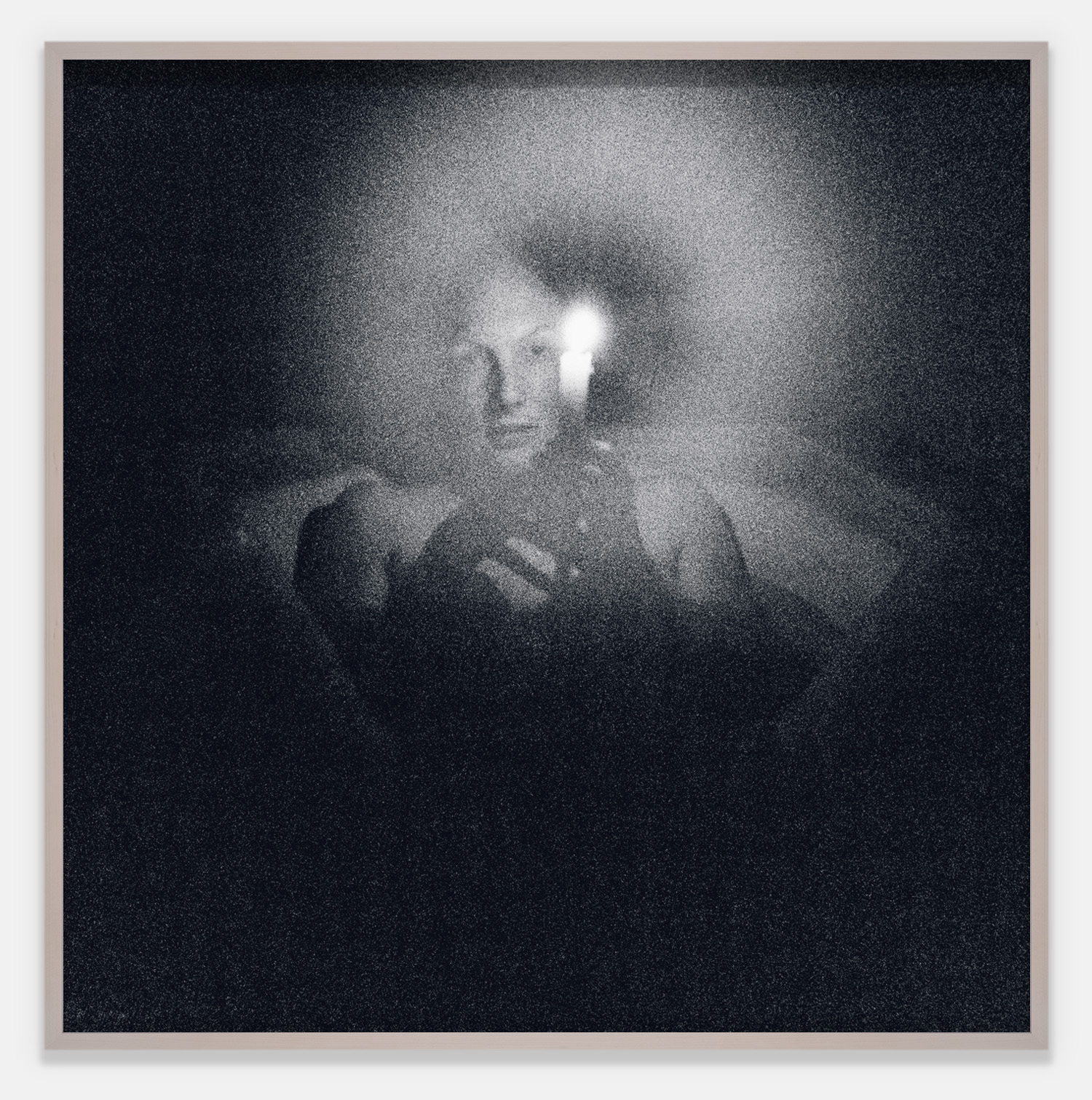
Dash Snow
Untitled (Jade Candle 2), 2007
Digital C-print
30 x 30 inches
(76.2 x 76.2 cm)
Courtesy of the Dash Snow Archive, NYC and Morán Morán
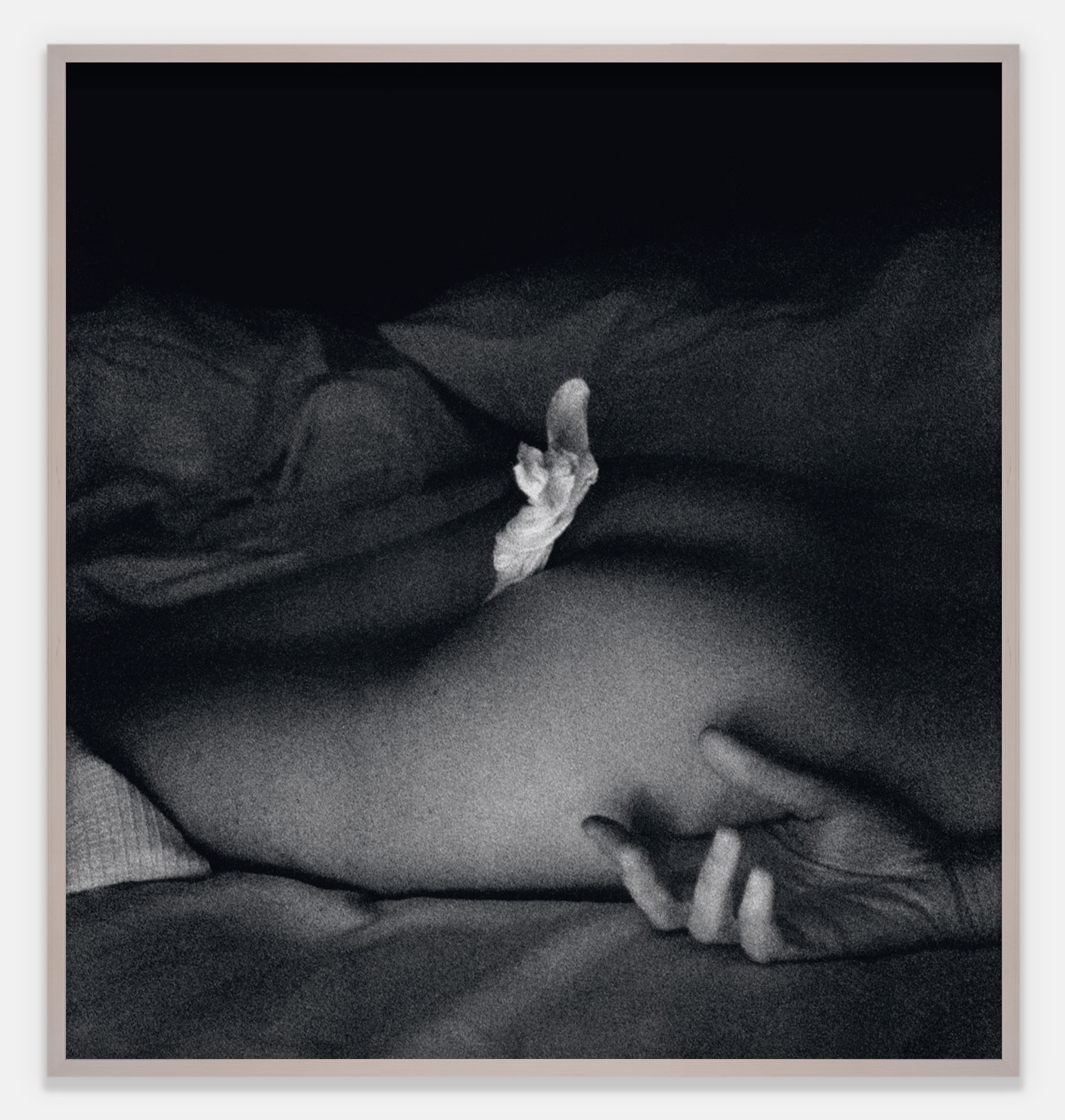
Dash Snow
Untitled (Ass Tissue), 2008
Digital C-print
35.3 x 37.5 inches
(89.6 x 95.2 cm)
Courtesy of the Dash Snow Archive, NYC and Morán Morán

Dash Snow
Untitled (Jade and Jack in the nest), 2007
Digital C-print (5 parts)
60.5 x 41 inches (each)
(153.7 x 104.1 cm [each])
Courtesy of the Dash Snow Archive, NYC and Morán Morán
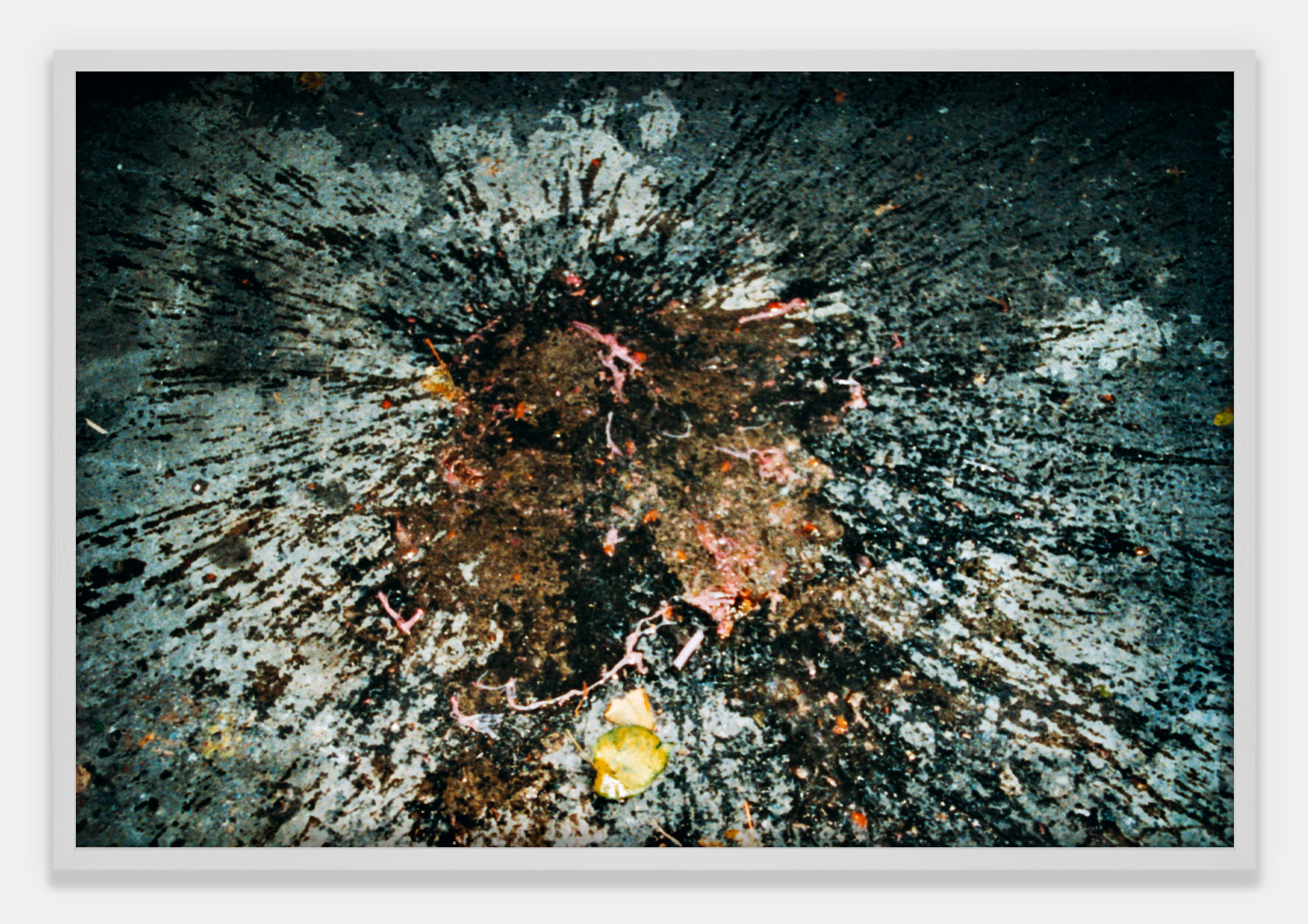
Dash Snow
Untitled (Barf), 2008
Digital C-print
40 x 60 inches
(101.6 x 152.4 cm)
Courtesy of the Dash Snow Archive, NYC and Morán Morán
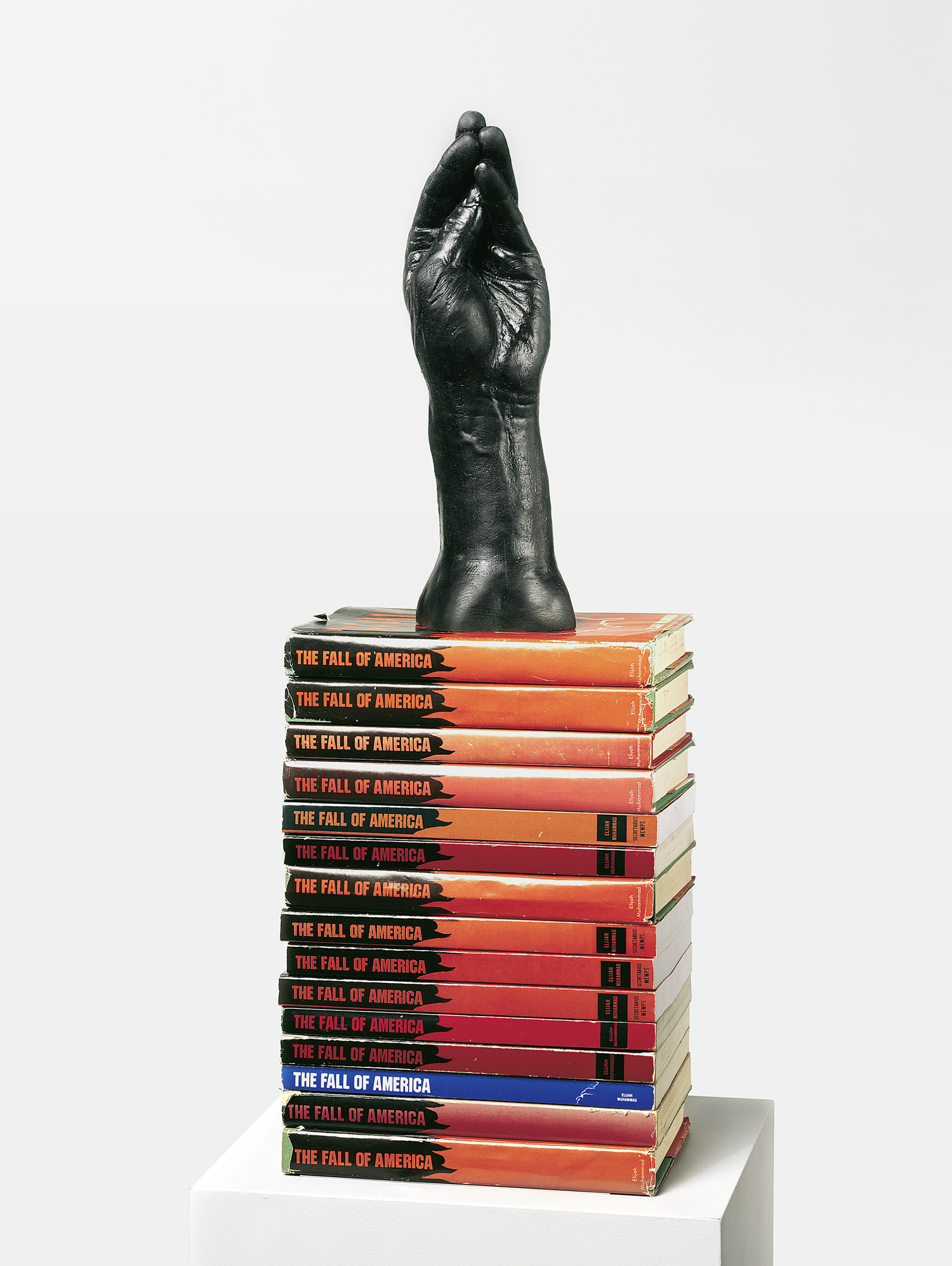
Dash Snow
The Fall of America, 2006-07
Mixed media
24 × 8 × 6 inches
(61 x 20.3 x 15.2 cm)
Courtesy of the Dash Snow Archive, NYC and Morán Morán
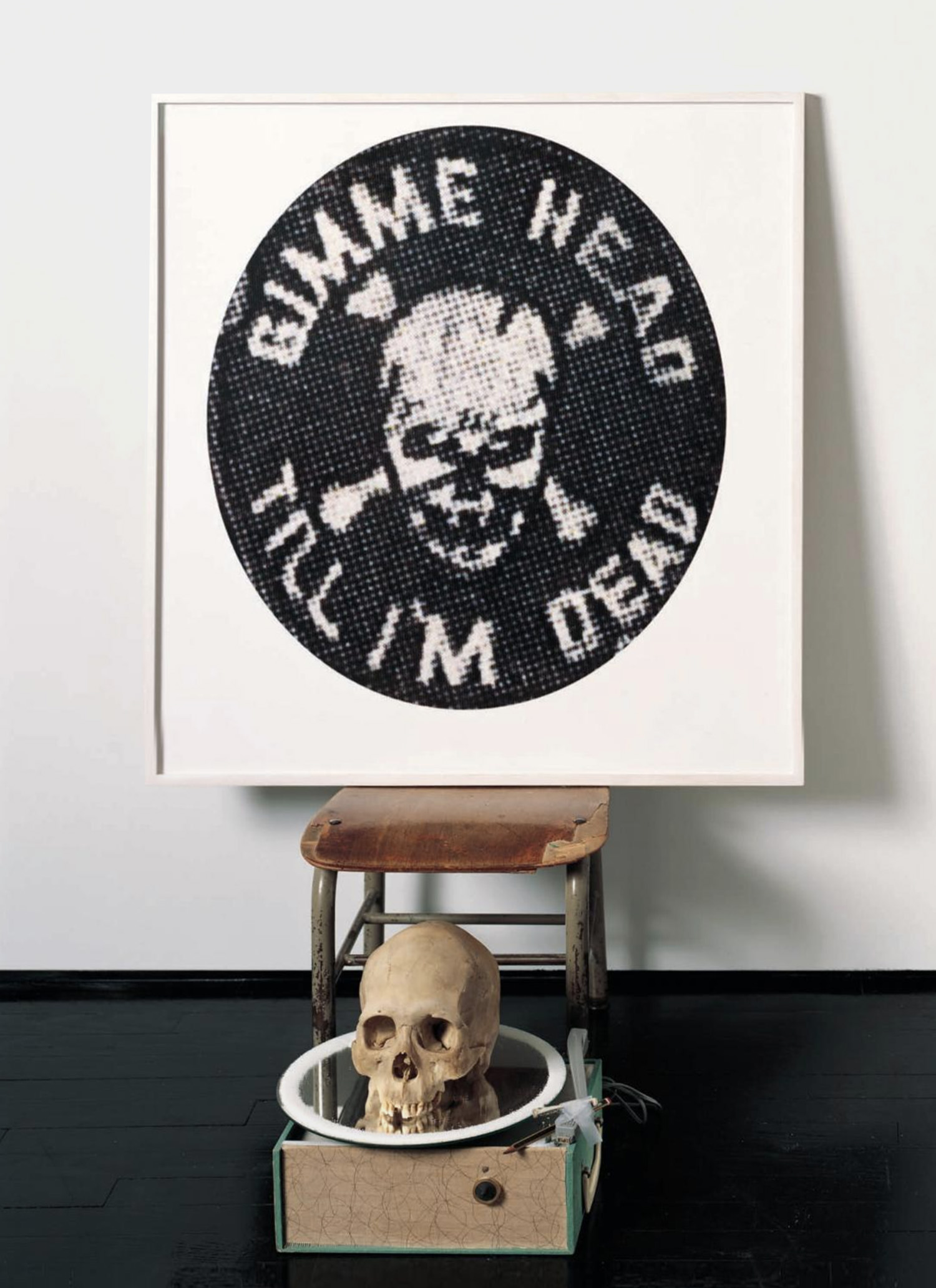
Dash Snow
Gimme Head Till I’m Dead, 2007
Mixed media
44.5 x 30.75 x 29.25 inches
(113 x 78 x 74 cm)
Courtesy of the Dash Snow Archive, NYC and Morán Morán
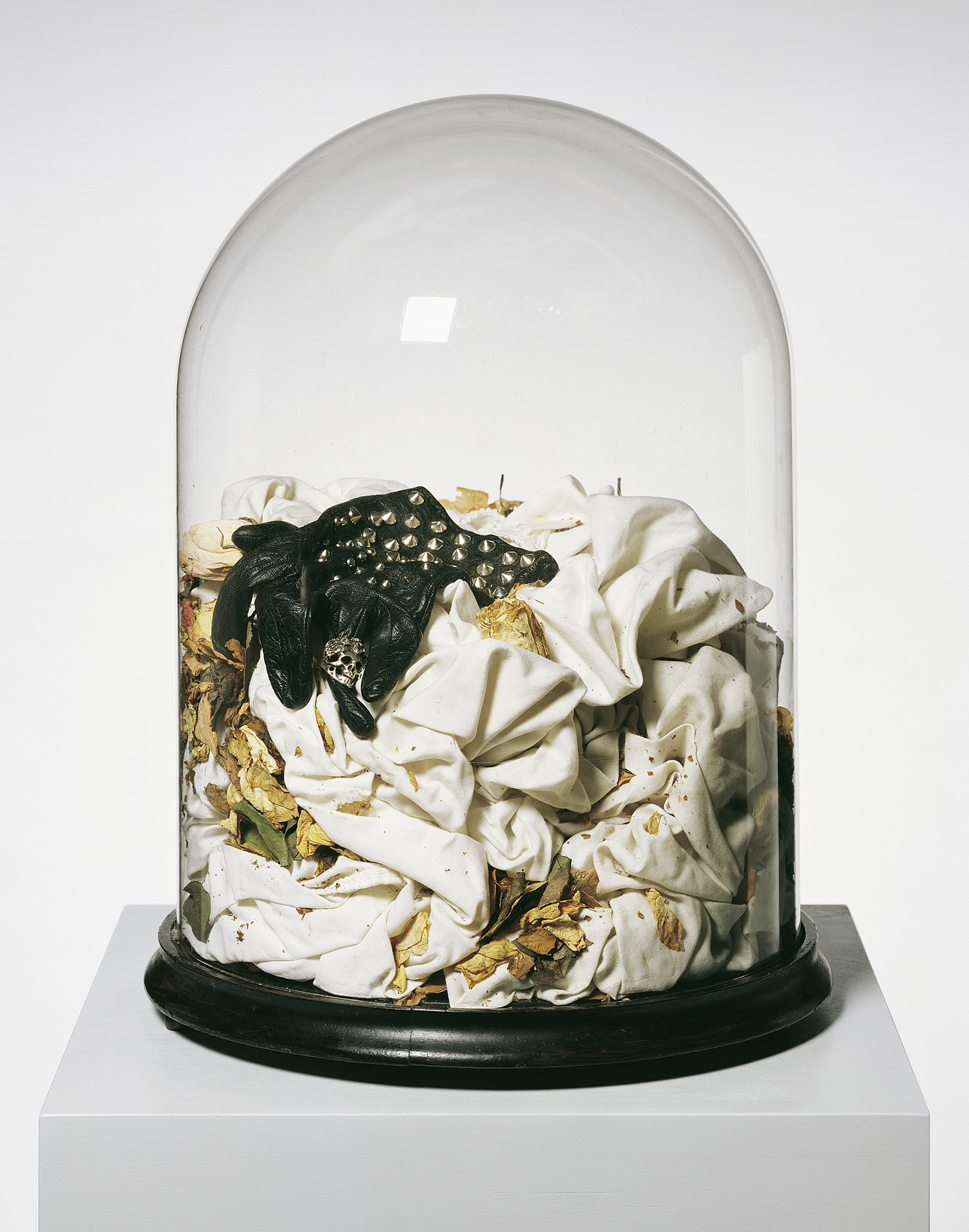
Dash Snow
Secret Conception, 2006-07
Mixed media
18.75 x 14.25 x 14.25 inches
(47.5 x 36.2 x 36.2 cm)
Courtesy of the Dash Snow Archive, NYC and Morán Morán
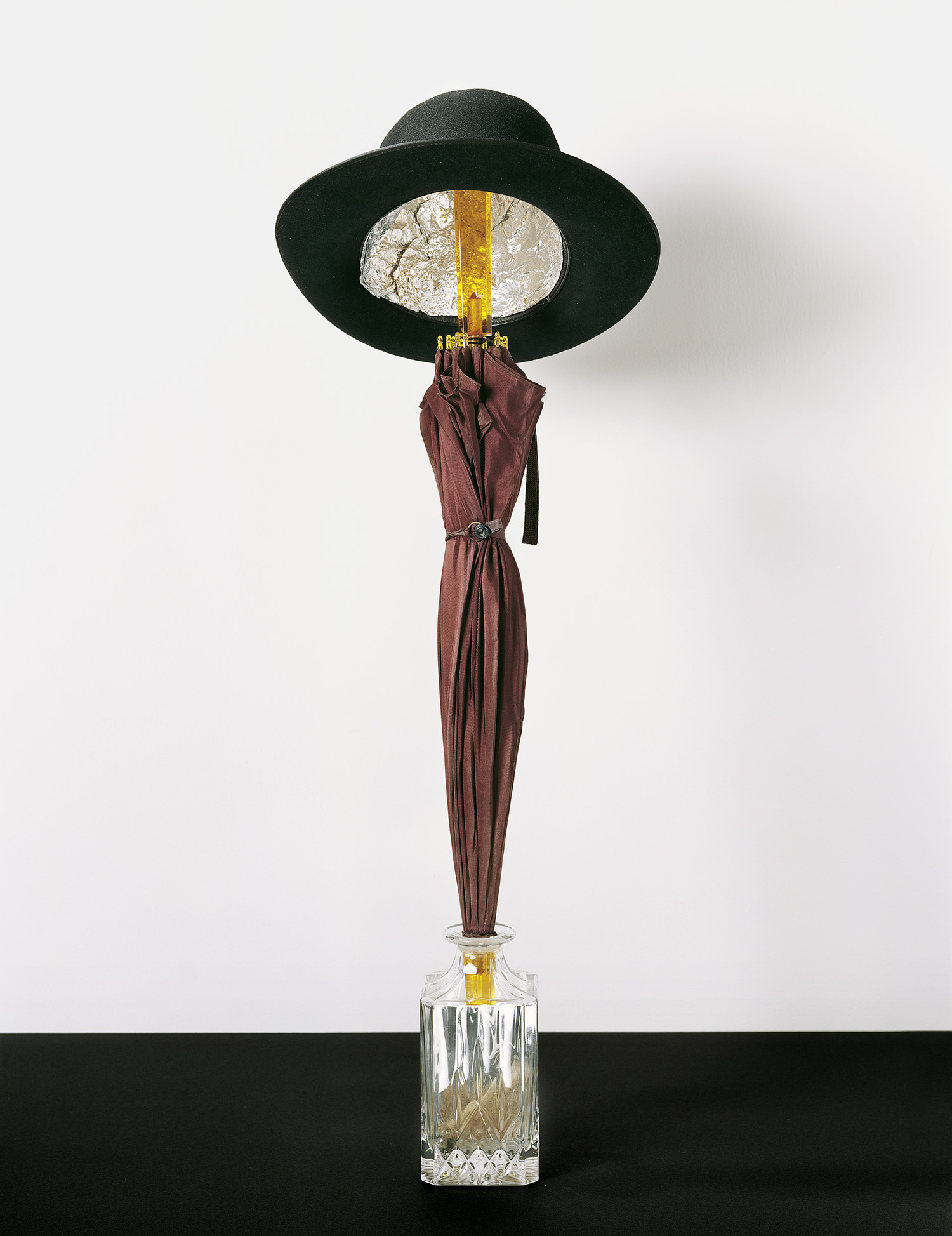
Dash Snow
Untitled, 2006-07
Mixed media
35 x 12 x 9 inches
(88.9 x 30.5 x 22.9 cm)
Courtesy of the Dash Snow Archive, NYC and Morán Morán
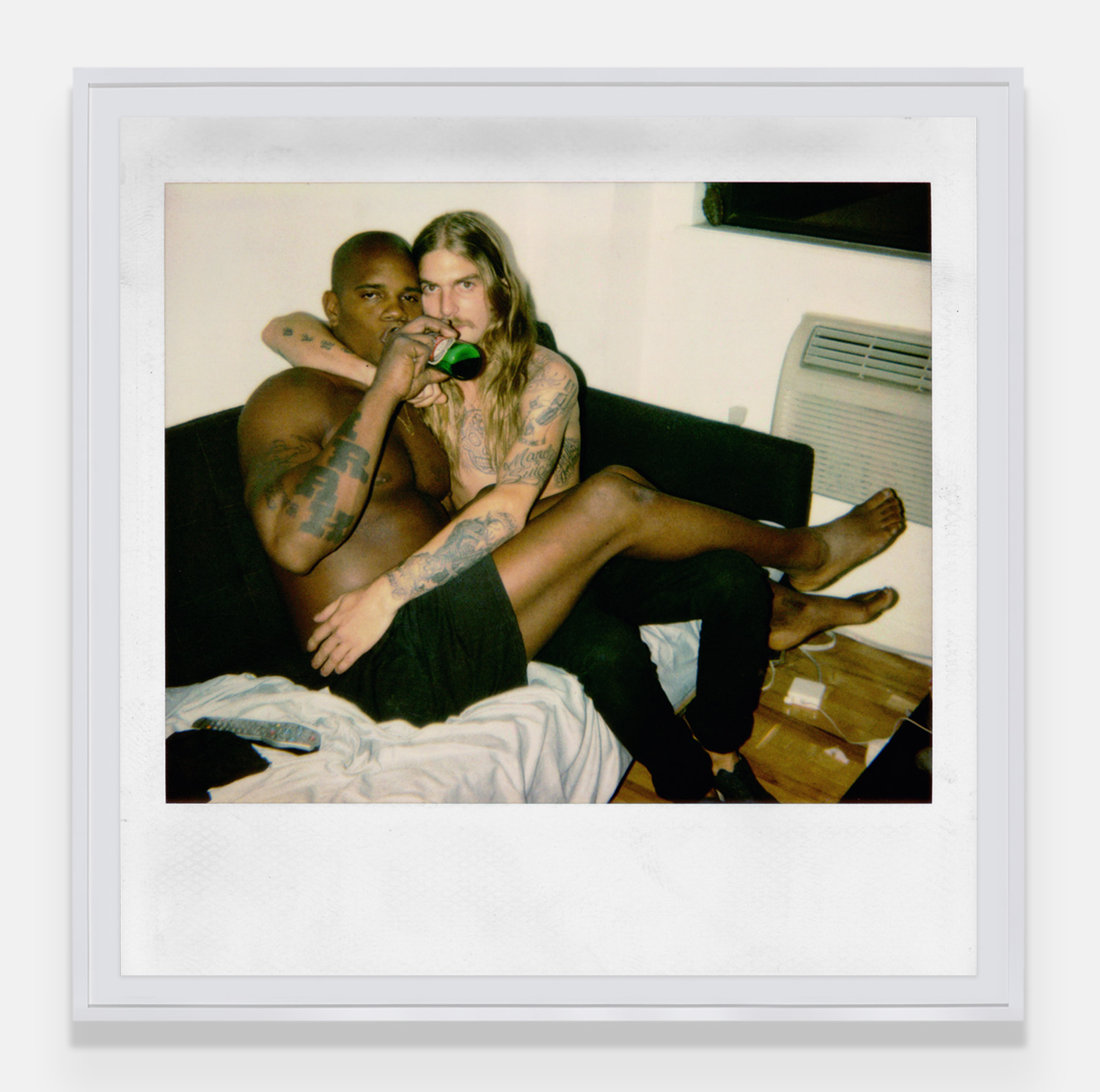
Dash Snow
Untitled (Polaroid #141), 2000-2009/2021
Digital c-print from Polaroid
24 x 24 inches
(50.8 x 50.8 cm)
Courtesy of the Dash Snow Archive, NYC and Morán Morán
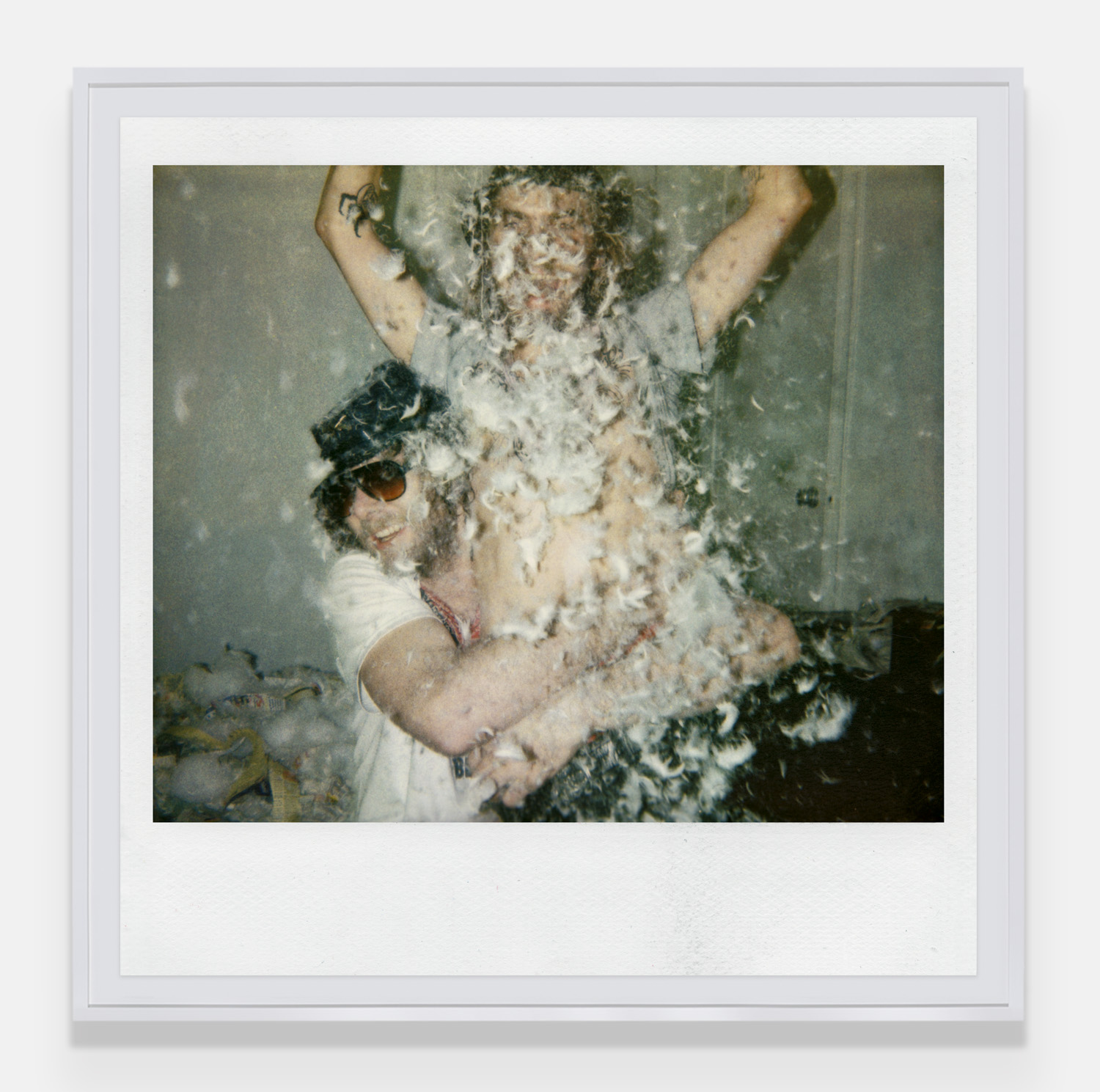
Dash Snow
Untitled (Polaroid #5), 2000-2009/2021
Digital c-print from Polaroid
24 x 24 inches
(50.8 x 50.8 cm)
Courtesy of the Dash Snow Archive, NYC and Morán Morán
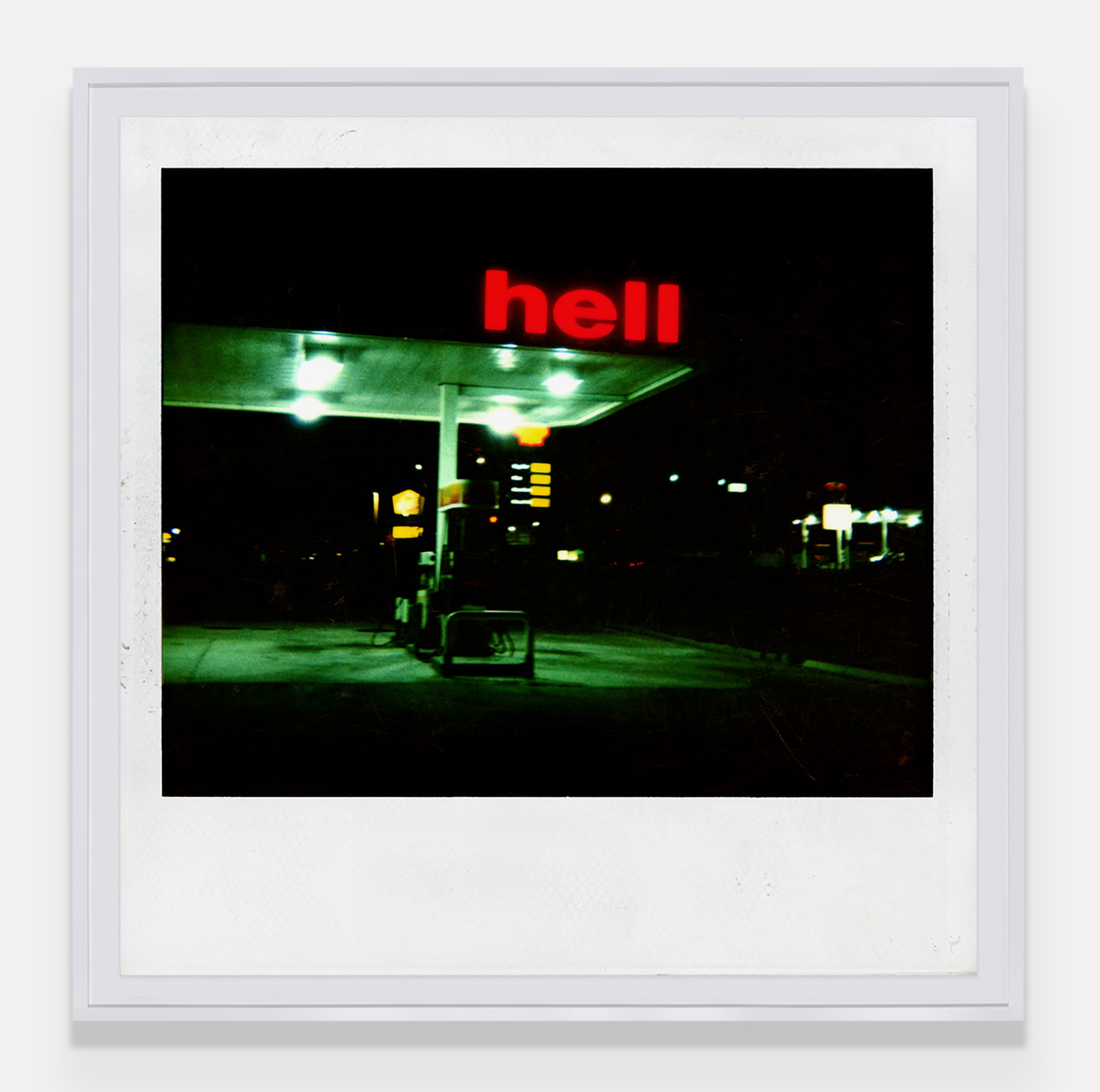
Dash Snow
Untitled (hell), 2000-2009/2021
Digital c-print from Polaroid
24 x 24 inches
(50.8 x 50.8 cm)
Courtesy of the Dash Snow Archive, NYC and Morán Morán
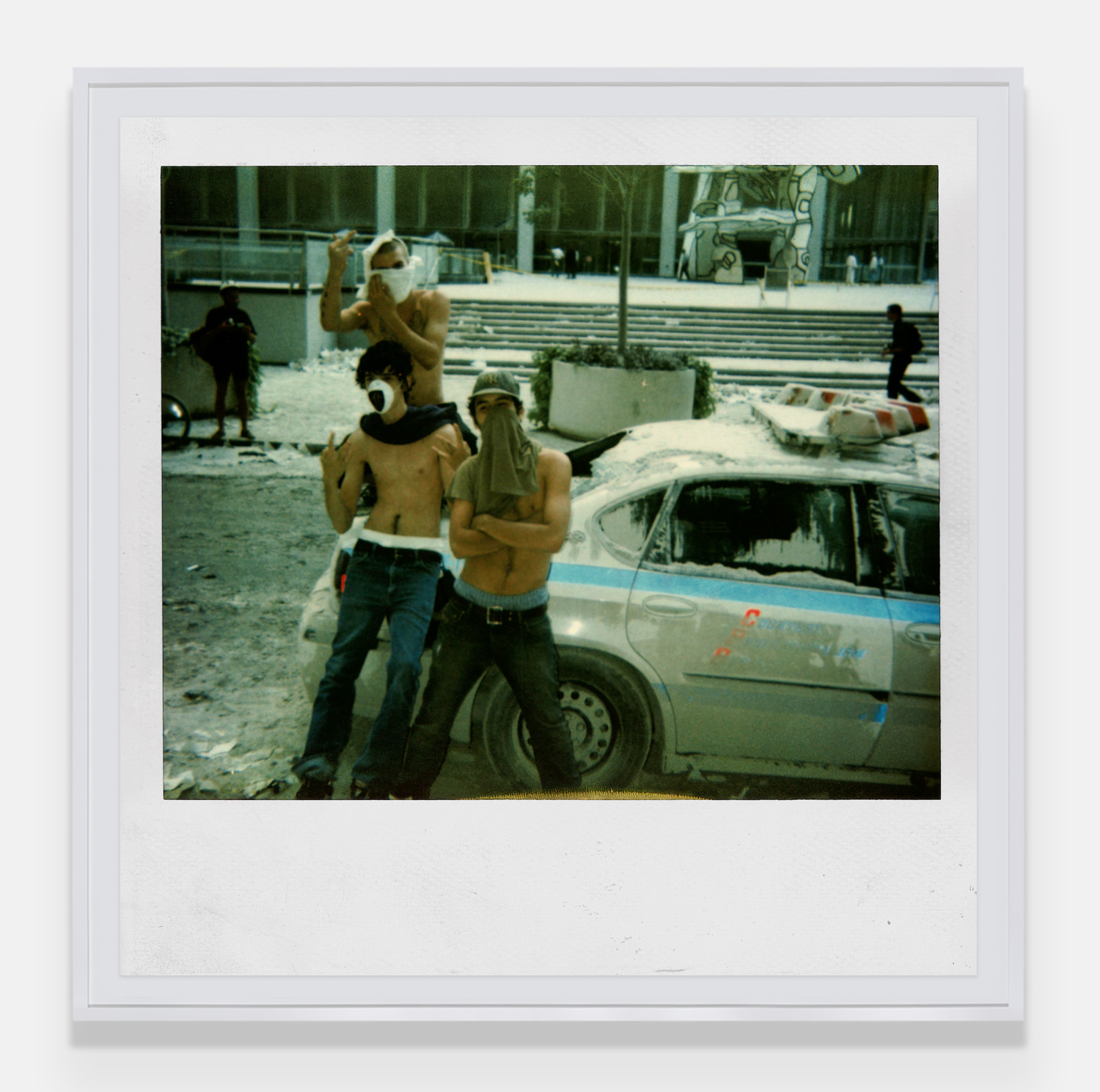
Dash Snow
Untitled (Polaroid #17), 2000-2009
Digital c-print from Polaroid
24 x 24 inches
(50.8 x 50.8 cm)
Courtesy of the Dash Snow Archive, NYC and Morán Morán
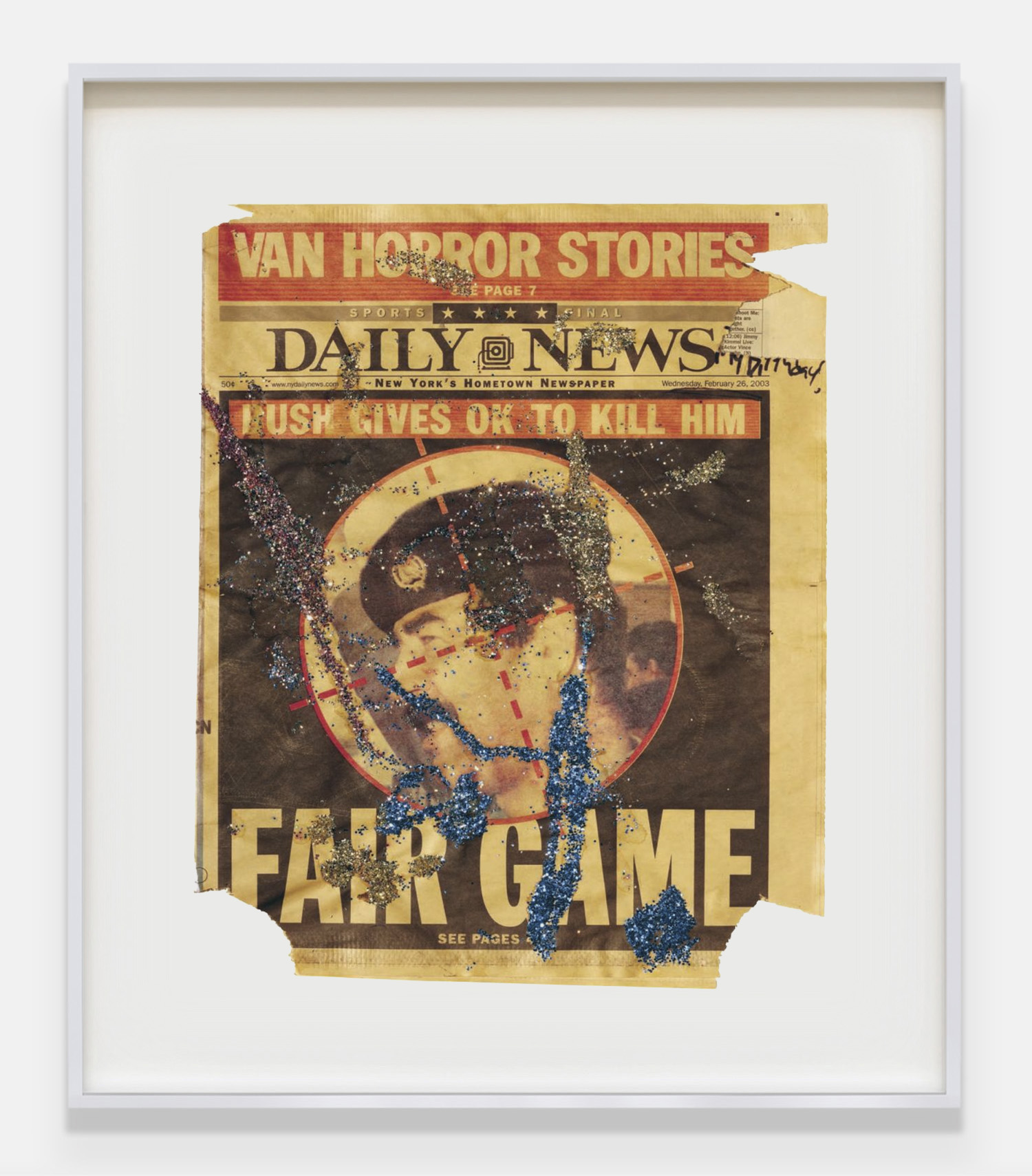
Dash Snow
Untitled (“Fair Game”), 2006-07
Saddam Glitter Cum Series, Vol. 1
Collage
13.75 x 11
(35 x 28 cm)
Courtesy of the Dash Snow Archive, NYC and Morán Morán
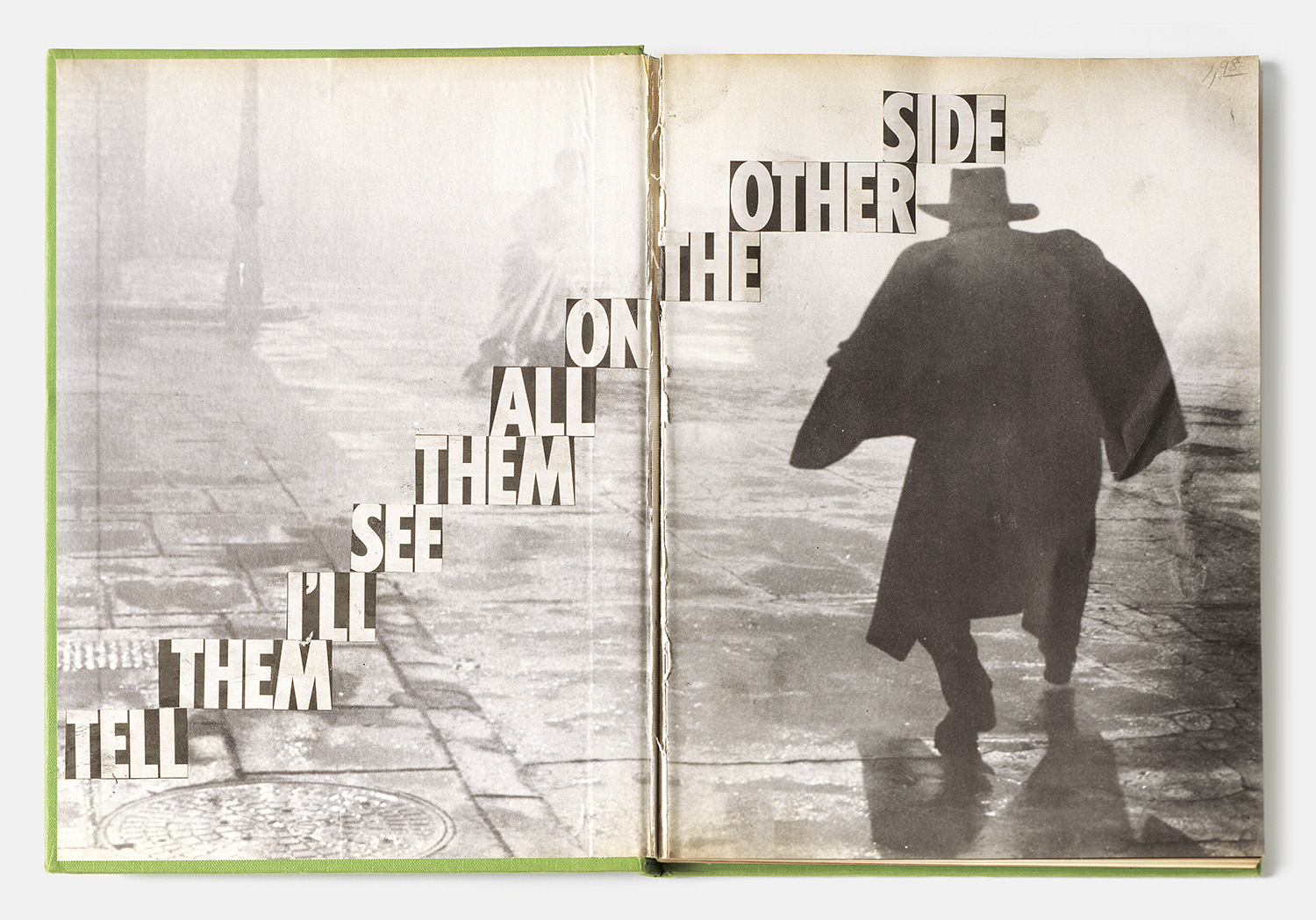
Dash Snow
Untitled (“Tell Them I’ll See…”), 2006-07
Photocopy and collage on book
12 x 8.75 x 1 inches
(30.5 x 22.2 2.5 cm)
Courtesy of the Dash Snow Archive, NYC and Morán Morán
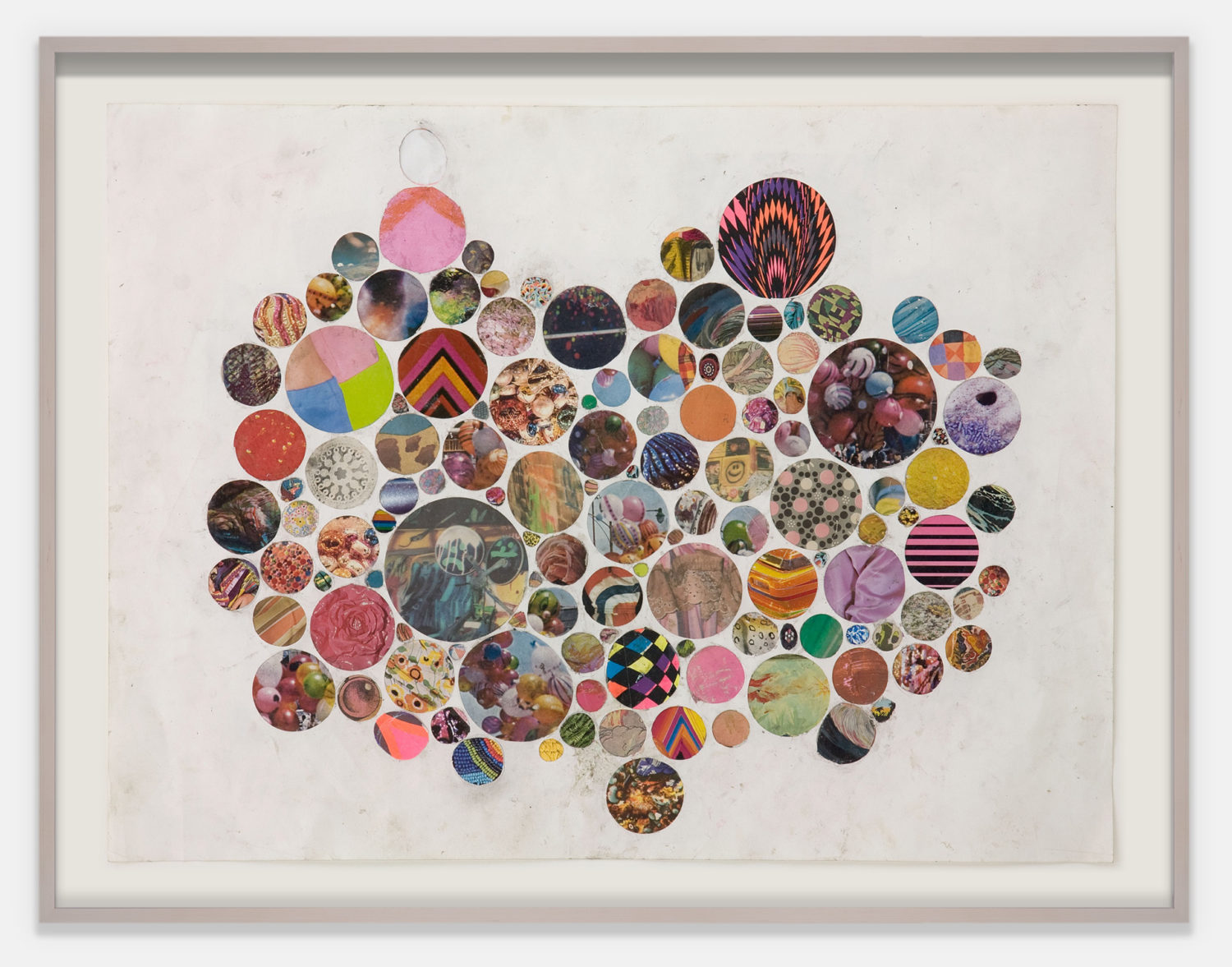
Dash Snow
Untitled, 2007
Collage
17.75 x 23.75 inches
(45.1 x 60.3 cm)
Courtesy of the Dash Snow Archive, NYC and Morán Morán
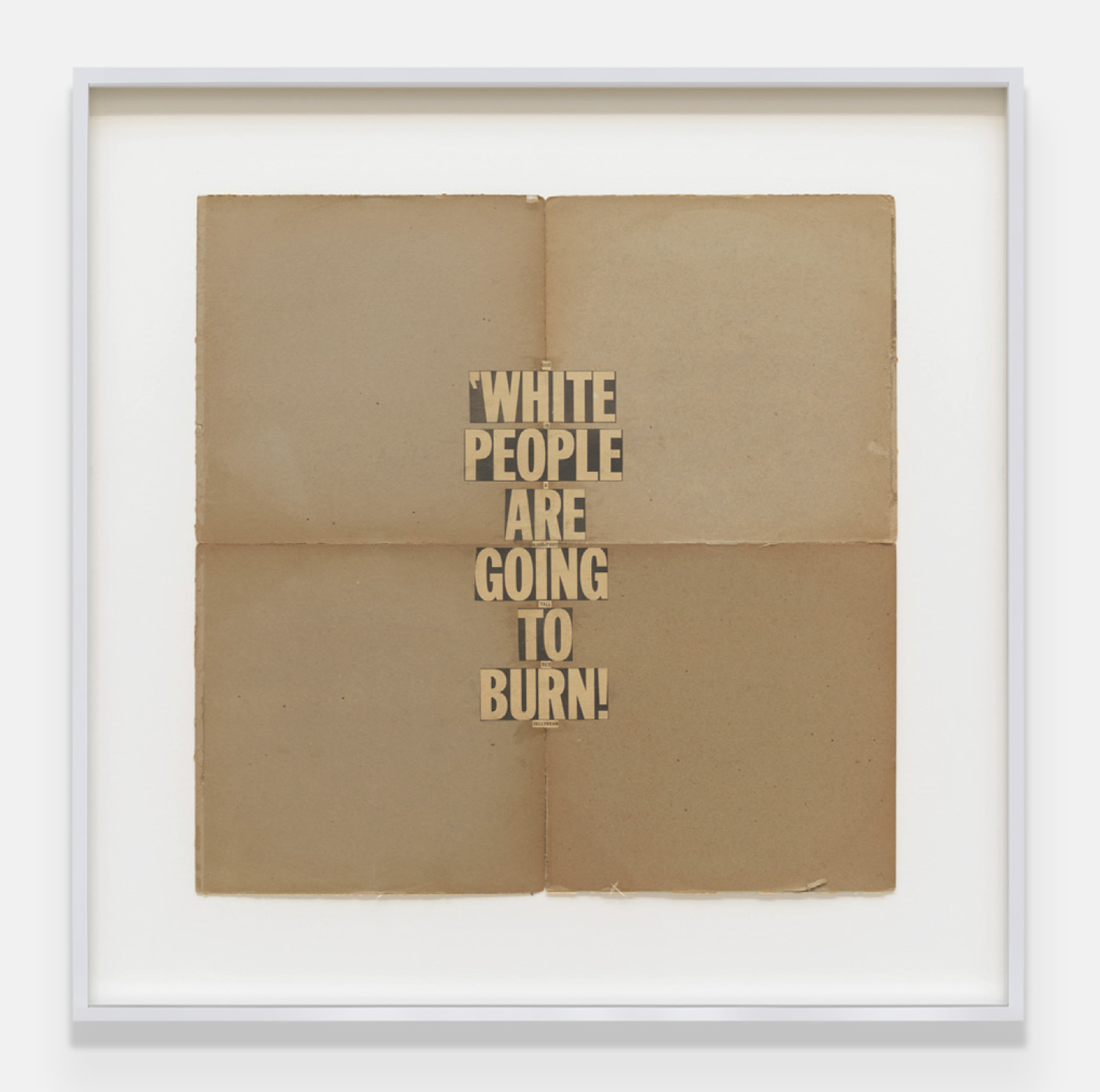
Dash Snow
White People Are Going To Burn, 2006
Printed paper collage and tape on four joined pieces of cardboard
24 x 24 inches
(61 x 61 cm)
Courtesy of the Dash Snow Archive, NYC and Morán Morán
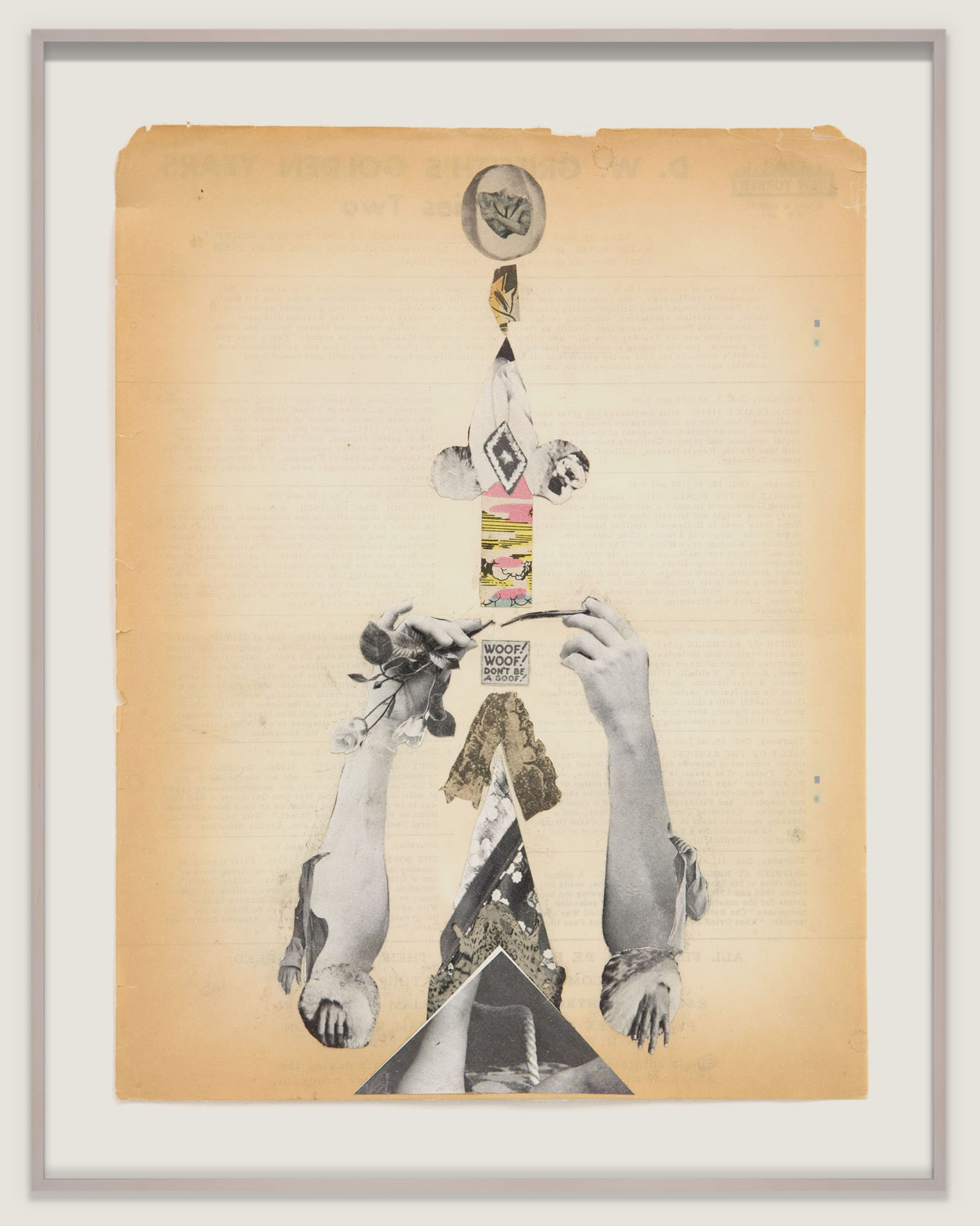
Dash Snow
Untitled, 2007
Collage
11 x 8.5 inches
(28 x 21.6 cm)
Courtesy of the Dash Snow Archive, NYC and Morán Morán
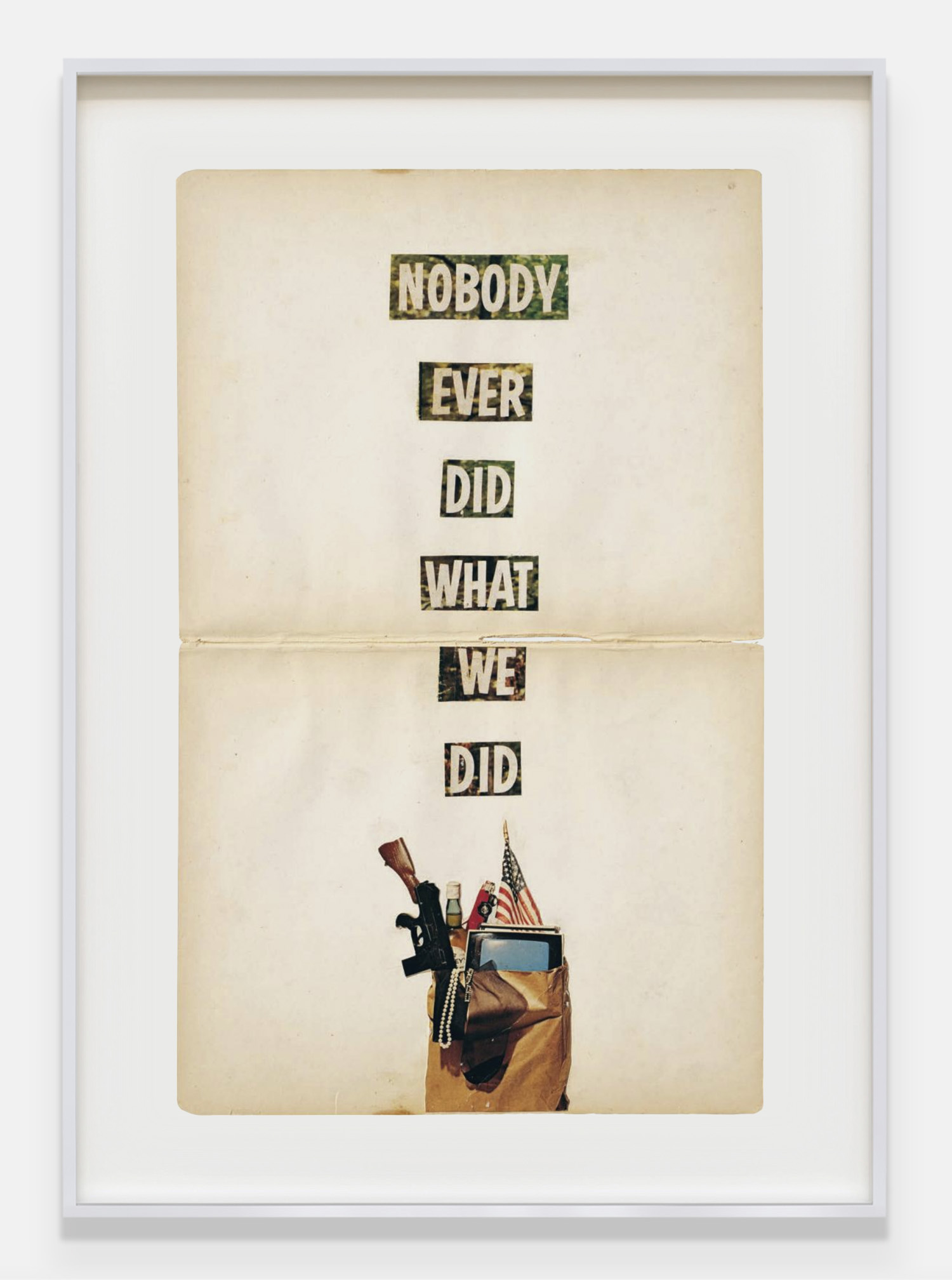
Dash Snow
Nobody Ever Did What We Did, 2006-07
Collage
17.5 x 10.75
(44.2 x 27.3 cm)
Courtesy of the Dash Snow Archive, NYC and Morán Morán
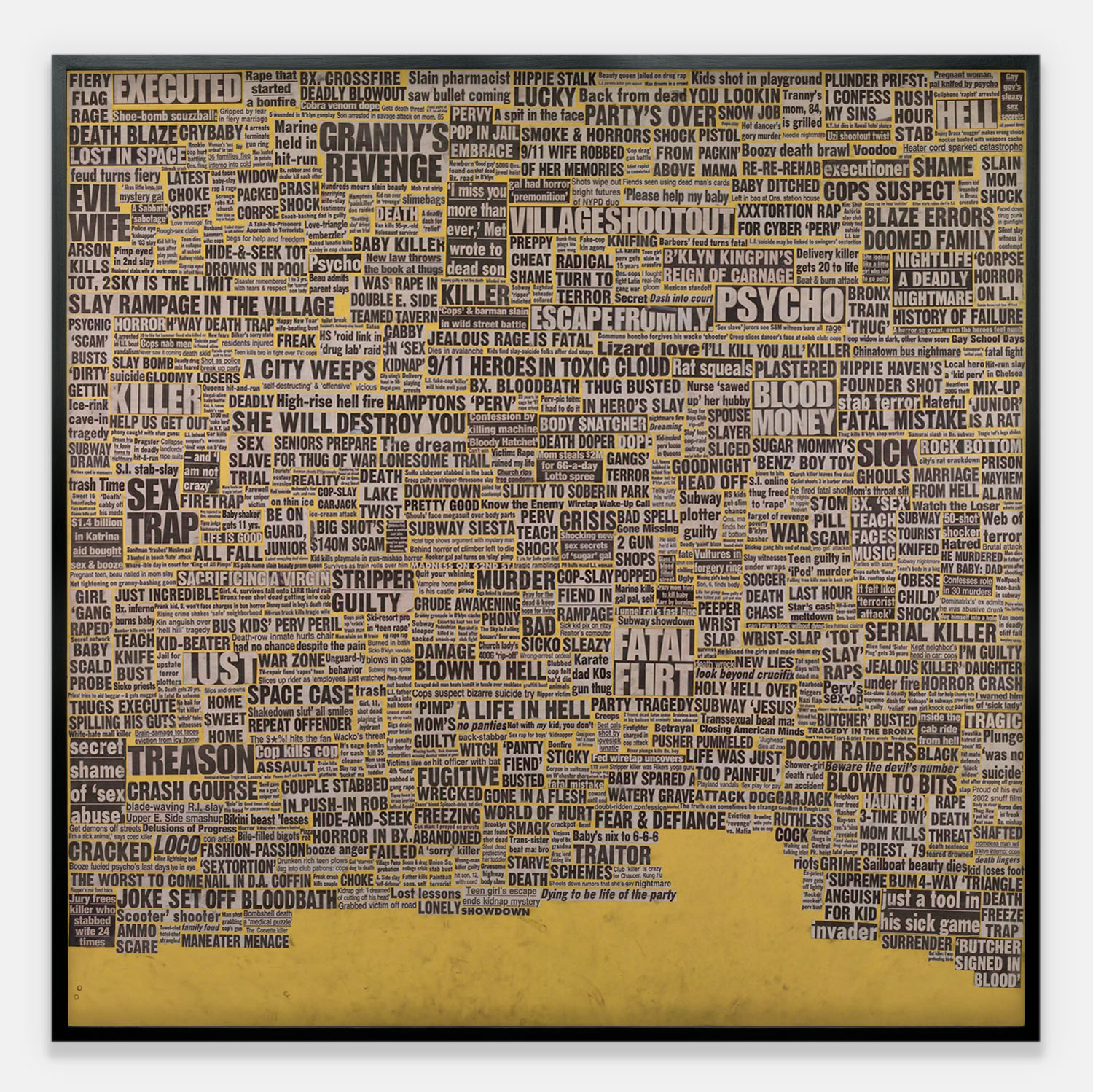
Dash Snow
Untitled, 2007
Collage on wood
70 x 70 inches
(177.8 x 177.8 cm)
Courtesy of the Dash Snow Archive, NYC and Morán Morán
Dash Snow
Sisyphus, Sissy Fuss, Silly Puss, 2009
Super 8mm Film (digitized / no sound)
13 minutes and 10 seconds
Courtesy of the Dash Snow Archive, NYC and Morán Morán
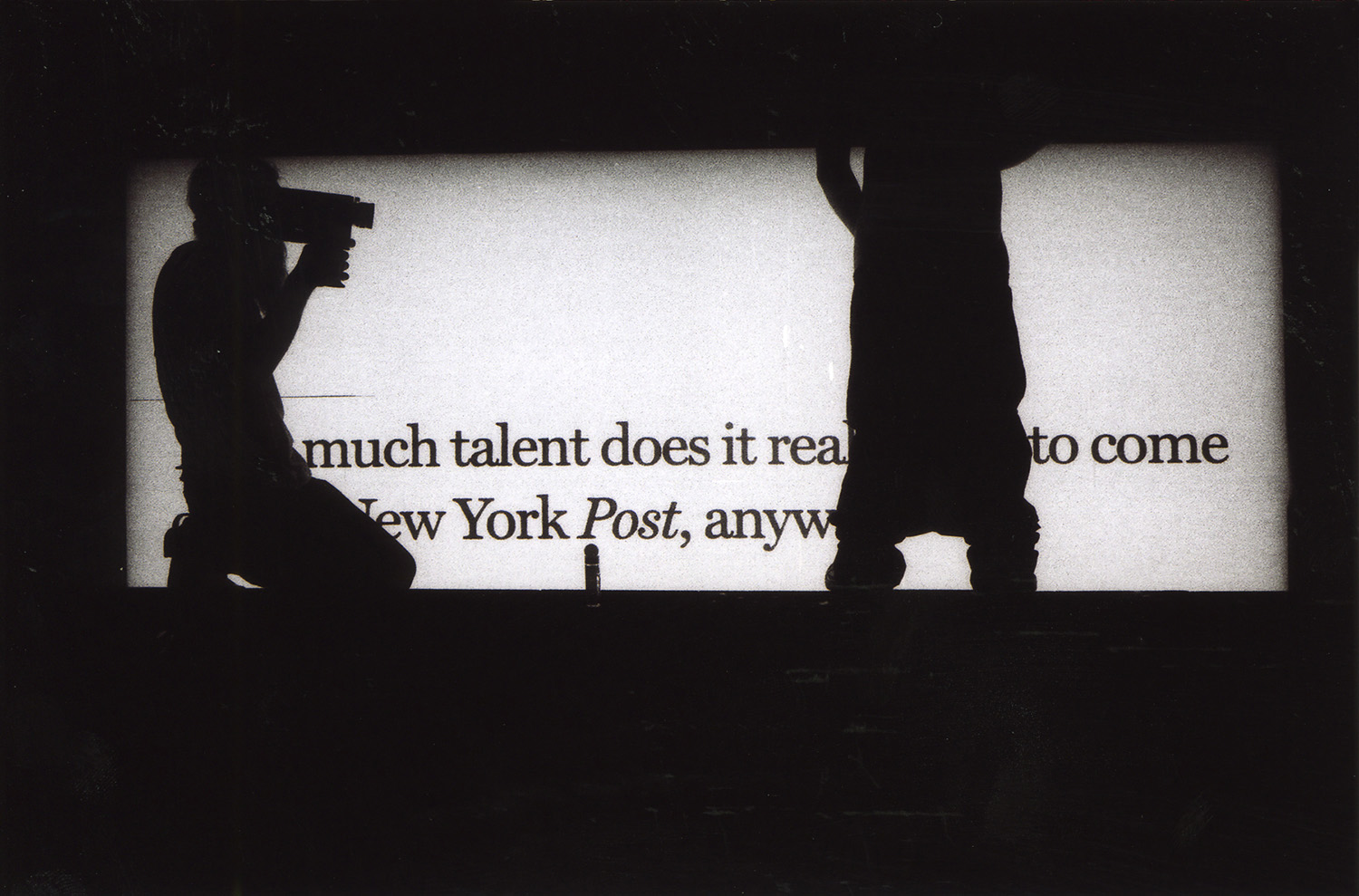
Dash Snow
Untitled (Penis Envy), 2007
Performance still
Courtesy of the Dash Snow Archive, NYC and Morán Morán

